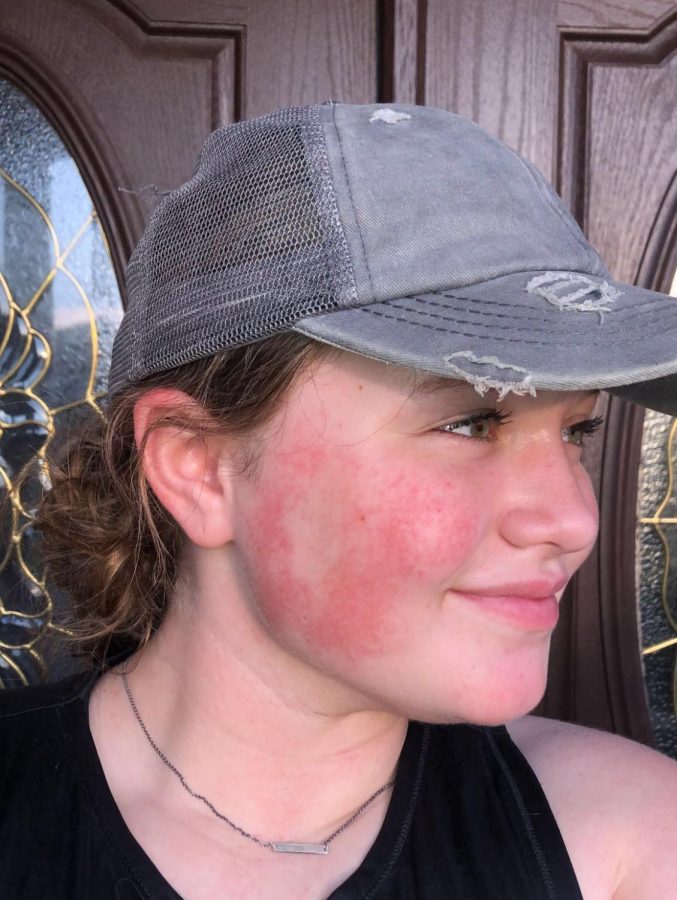Rosacea: what is it?
Spreading awareness
“Are you ok? You look overheated.” No, my face is always like this. “Are you embarrassed?” No, but I am now that everyone thinks I am. “Does that ever go away?” Nope, I’m stuck with it.
I have been asked these questions and many more all throughout the majority of my life. What they’re questioning is the splotchy redness on my face that couldn’t be more noticeable.
I have a condition called Rosacea that covers the better part of my cheeks and chin. I honestly can’t remember a day I looked in the mirror and was shocked by the redness on my face. It’s just always been there. I asked my parents what was going on, but it turns out that Rosacea runs in the family. Mine was only a mild case. Despite the severity of my case, it can be frustrating to live with.
John Hopkins Medicine lists the tell-tale signs and kinds of Rosacea you could be experiencing. Rosacea is a chronic skin condition that is most common in the face, however, affected areas can include the eyes, neck, chest, etc. Age can be a factor but not always, like in my case. Most of the time Rosacea is more common in women than men and in the ages 33-50 years old. It is a widespread condition but can take a while to get along with.
Weather can also change the physical appearance of Rosacea. For example, in very cold temperatures, especially in the wind, the redness in one’s cheeks can get so deep that it can appear to be purple. I have to try my best to cover my face in those types of weather conditions or my Rosacea will flare up and get even more attention. This can be the same result for anyone with Rosacea wherever it might be on their body.
My struggle with Rosacea really only started in high school. There were small comments here and there. New people I met were more intrigued with what was going on on my face than whatever we were talking about. Needless to say, Rosacea is definitely a conversation starter. Then came class discussions which brought up questions I didn’t know the answer to. It was embarrassing, to say the least. It became one of my undeniable characteristics; Kendall was not Kendall without her red cheeks. For such a common condition, I have never met someone that has a face quite like mine, but I know people have Rosacea worse than my own.
Dealing with the insecurities that come from Rosacea while juggling life can take a toll on your mental health. The anxiety from worrying if people will notice your face and neck if you wore enough makeup to conceal every inch of the redness, or if someone is going to ask what was going on with the area gets to be very overbearing. Not to mention, anxiety and stress can inflame Rosacea. Sometimes I give up on the makeup altogether because there’s just no way I can cover it 100 percent.
Something else that can make your self-esteem drop like a rock when having Rosacea is being the butt of jokes or it being used as an insult. Joking or using something against someone that they can’t control is not all that fair. I know the jokes have no meaning, but I also know I’m not the only one that feels this way, and it is not just people with Rosacea.
Rosacea might not be life-threatening or completely untreatable, but it can still affect the well-being of those who have it. So, next time you see someone that has splotchy redness, think twice about asking about it and how it might affect them.
For more information about Rosacea, visit www.hopkinsmedicine.org/rosacea or www.rosacea.org/tags/cold-weather.





